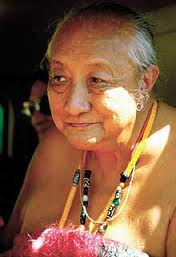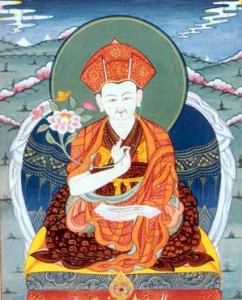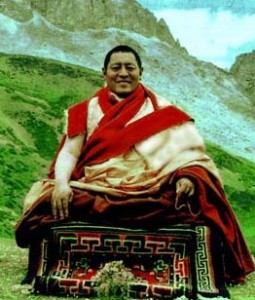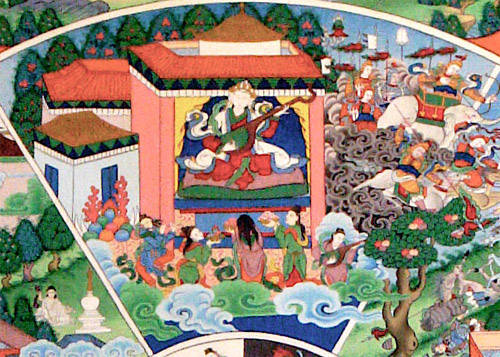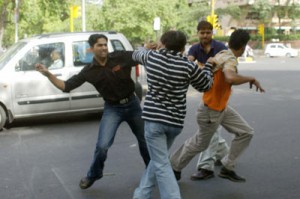The following is respectfully quoted from “Enlightened Courage” by Dilgo Khyentse Rinpoche:
As a preliminary to this teaching, we must consider three things: the preciousness of being born a human being, the fact of impermanence and the problem of samsaric existence.
Human Birth
We are at the moment in possession of a precious human existence endowed with eighteen characteristics which are very difficult to obtain. If the teachings of the Buddha are practiced correctly, then it is as the saying goes:
Used well, this body is a ship to liberation,
Otherwise it is an anchor in samsara.
This body is the agent of all good and evil.
From the point of view of one who seeks enlightenment, it is far better to be a human being than to be born even in the heavens of the gods, where there is nectar to live an and all wishes are granted by the wish-fulfilling tree; where there is neither fatigue nor difficulty, neither sickness or old age. It is as humans, possessed of the eight freedoms and ten endowments, and not as gods, that every one of the thousand Buddhas of this age has attained, or will attain, enlightenment. This human existence, moreover, is not to be achieved by force or mere chance; it is the result of positive actions. And because it is rare for beings to accomplish positive actions, a precious human existence is indeed difficult to obtain. Nevertheless, we have now managed to be born into such a state; we have encountered the Buddhadharma, have entered the path and are now receiving teachings. But if we are unable to practice them, simply listening to the teachings will not in itself liberate us from samsara, and will be of no help to us when we are confronted by the hardships of birth, disease, old age and death. If we do not follow the doctor’s prescription when we are sick, then if if the doctor sits constantly by our side, the pain will not go away.
Impermanence
As we have just said, if we neglect to practice the teachings, they will be of no use to us. Moreover our lives are fragile and impermanent, and because death and its causes are uncertain, we may succumb at any moment. We may think, “Oh, I will practice when I am older, but now while I am young, I will live an ordinary life, making money, getting the better of my rivals, helping my friends and so on.’ But the fact is we might not live to be very old. Just think for example of people who were born at the same time as ourselves. Some might have died as children, some as adults, at their work and so on. Our own lives might not be very long either.
Furthermore, a human existence, in comparison with that of an animal, seems almost impossible to achieve. If you examine a clod of earth in summer, you might find more creatures in it than the population of the whole of France! That is why we say that, in terms of numbers alone, a human birth is difficult to obtain. So we should make up our minds that we will practice the Dharma instead of throwing our lives away in meaningless activities.
To use our human lives to accomplish the Buddhadharma, is like crossing the ocean in search of costly jewels and afterwards returning home with every kind of precious thing; the difficulties of the trip will have been well rewarded. It would be a shame to come back empty-handed! We are now in possession of a precious human form and have discovered the Teachings of the Buddha. Through the blessings and kindness of teachers it is now possible for us to receive, study and practice the Doctrine. But if we are preoccupied only with the worldly activities of this life: business, farming, prevailing over enemies, helping friends, hoping for an important position and so on–and we die before we have made time for spiritual practice, it would be just like coming home empty-handed from the isle of jewels. What an incredible waste! Therefore we should think to ourselves, ‘I am not going to miss my chance. While I have this precious opportunity, I will practice the Dharma.’ Of course, the best thing would be to practice for the whole of our lives; but at least we should take refuge properly, for this is the essence of the Buddhadharma and closes the door to the lower realms. It is the universal antidote that can be applied in any kind of difficulty, and to practice it is therefore most important.
Although, for the moment, you do not understand me, due to the difference of our languages, you are all aware that I am giving you some instruction. After I have gone, everything will be translated for you and perhaps you will think, ‘That Lama taught us something important; I must put it into practice.’ If you really do so, in your lives from day to day, then my explanation will have had some point to it. So please take it to heart.
The defects of samsara
The experience of happiness and suffering comes about as the result of positive and negative actions; therefore evil should be abandoned and virtue cultivated as much as possible.
Even the tiniest insect living in the grass wishes to be happy. But it does not know how to gather the causes of happiness, namely positive actions, nor how to avoid the cause of suffering, which is evil behavior. When animals kill and eat each other, they instinctively commit negative actions. They wish for happiness, but all they do is to create the causes of their misery and experience nothing but suffering. This is the measure of their ignorance and delusion. But if the truth were really shown to them, then without a care even for their lives, they would accomplish that very virtue which they would recognize as the source of their own happiness. The essence of the Buddha’s teaching is to understand clearly what behavior is to be adopted and what is to be rejected.
Abandon evil-doing,
Practice virtue well,
Subdue your mind:
This is the Buddha’s teaching.
At the moment, we are all caught in the state of delusion, and so we should acknowledge all the negative actions we have perpetrated throughout our many lives until the present time. And from now on, we should turn away from all such actions big or small, just as we would avoid getting thorns in our eyes. We should constantly be checking what we do: any negative action should be confessed immediately, and all positive actions dedicated to others. To the best of our ability, we should abandon wrongdoing and try to accumulate goodness.
